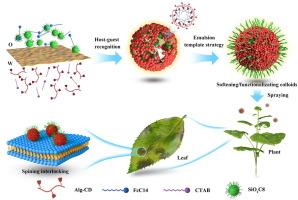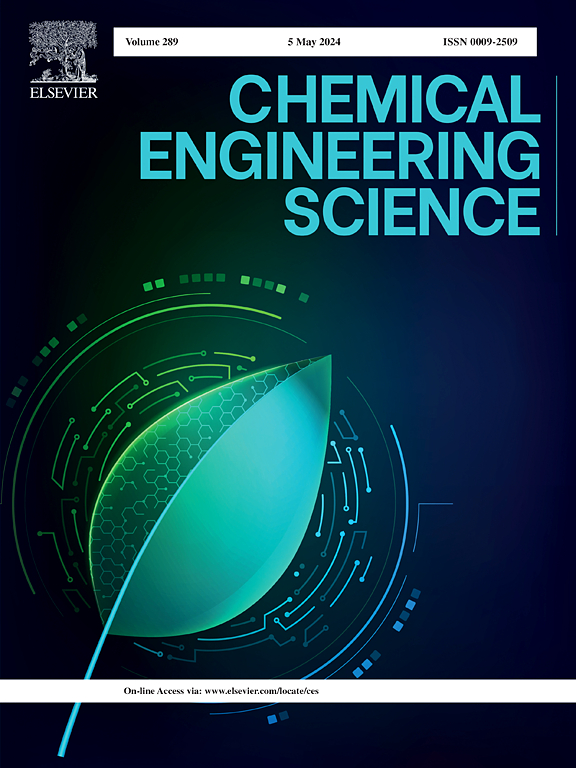Redox-Animated Supra-Amphiphilic Host-Guest interfacial recognition for Reconfiguring Alginate-Derived hierarchical colloidal particles to enhance foliar pesticide deposition
IF 4.1
2区 工程技术
Q2 ENGINEERING, CHEMICAL
引用次数: 0
Abstract
Insufficient deposition of pesticide droplets is a major factor contributing to ineffective control of agriculture. Improving the deposition of colloidal particle as agricultural delivery system is very important. Herein, supra-amphiphilic soft template was programmed by recognizing host–guest molecules on emulsion droplet surface. The supra-amphiphilic interfacial system possessed self-regulated amphiphilicity by modulating aggregation/disaggregation of supra-amphiphiles responding to redox-stimulus to control interface flexibility/functionalization characteristics of supramolecular colloids. This interface adjustability of hierarchical colloids greatly facilitated their prediction, control of corresponding targeting interfacial interaction responses of leaves. Then hierarchical particles exhibited a topology, pliability that allowed them to adapt to the micro/nanostructures of leaf surfaces, thus facilitating easier passage into the targeted pathogens. In vitro plot experiments, the supra-amphiphilic colloid with flexibility performed greatest antifungal capabilities against Botrytis Cinerea, reaching up to 88.65%, even after multiple rain erosions. Modulating the interfacial interactions towards hierarchical targets technically inspired a new green, sustainable agricultural application.

氧化还原拟化超亲和主客界面识别技术用于重构海藻酸盐衍生的分层胶体颗粒,以提高叶面农药沉积效果
杀虫剂液滴沉积不足是导致农业控制效果不佳的一个主要因素。改善胶体微粒作为农用给药系统的沉积非常重要。在此,通过识别乳液液滴表面的主客分子,设计出了超亲和软模板。超亲和界面系统通过调节超亲和物在氧化还原刺激下的聚集/解聚来控制超分子胶体的界面柔性/官能化特性,从而拥有自我调节的两亲性。分层胶体的这种界面可调性极大地促进了其预测、控制叶片的相应靶向界面相互作用反应。分层胶体的拓扑结构和柔韧性使其能够适应叶片表面的微/纳米结构,从而更容易进入目标病原体。在体外实验中,具有柔韧性的超两亲胶体对灰霉病菌的抗真菌能力最强,即使经过多次雨水侵蚀,抗真菌能力也高达 88.65%。通过调节界面相互作用以实现分层目标,从技术上激发了一种新的绿色、可持续农业应用。
本文章由计算机程序翻译,如有差异,请以英文原文为准。
求助全文
约1分钟内获得全文
求助全文
来源期刊

Chemical Engineering Science
工程技术-工程:化工
CiteScore
7.50
自引率
8.50%
发文量
1025
审稿时长
50 days
期刊介绍:
Chemical engineering enables the transformation of natural resources and energy into useful products for society. It draws on and applies natural sciences, mathematics and economics, and has developed fundamental engineering science that underpins the discipline.
Chemical Engineering Science (CES) has been publishing papers on the fundamentals of chemical engineering since 1951. CES is the platform where the most significant advances in the discipline have ever since been published. Chemical Engineering Science has accompanied and sustained chemical engineering through its development into the vibrant and broad scientific discipline it is today.
 求助内容:
求助内容: 应助结果提醒方式:
应助结果提醒方式:


